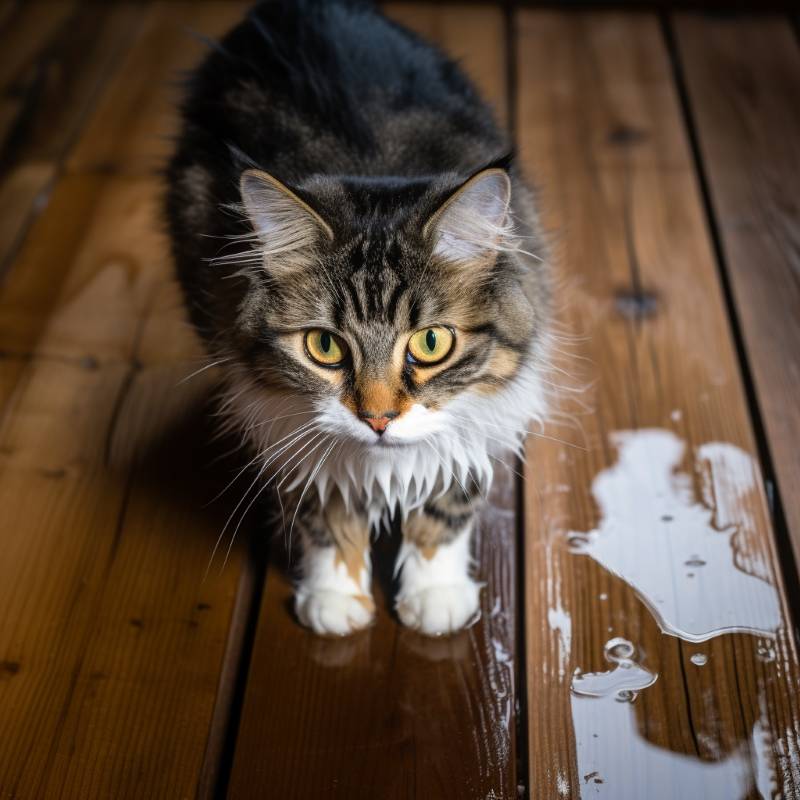 As cat owners, we all want our furry friends to live happy, healthy lives. But just like humans, cats can experience health issues, and one common concern is cystitis. Cystitis is an uncomfortable and potentially painful condition that affects cats, particularly those who are indoors and prone to stress. In this guide, we’ll help you spot the signs of cystitis in your feline companion and take the necessary actions to ensure their well-being.
As cat owners, we all want our furry friends to live happy, healthy lives. But just like humans, cats can experience health issues, and one common concern is cystitis. Cystitis is an uncomfortable and potentially painful condition that affects cats, particularly those who are indoors and prone to stress. In this guide, we’ll help you spot the signs of cystitis in your feline companion and take the necessary actions to ensure their well-being.
Understanding Cystitis in Cats
Cystitis, in simple terms, is inflammation of the bladder. While it can occur in cats of any age or breed, it’s more prevalent in female cats. The exact cause of cystitis can vary, but stress and diet are often contributing factors. Dehydration and urinary tract infections can also play a role.
Spotting the Signs
- Frequent Urination: One of the first signs you may notice is your cat making more trips to the litter box than usual. They may strain while urinating, or you might observe small, frequent urine deposits.
- Painful Urination: If your cat experiences discomfort during urination, they might vocalize their pain through meowing or hissing. Keep an ear out for any unusual sounds during bathroom breaks.
- Blood in Urine: Hematuria, or blood in the urine, is a red flag for cystitis. You may notice a pink or reddish tint in the litter box or on surfaces where your cat has urinated.
- Litter Box Aversion: Cats with cystitis may associate the litter box with pain, leading to avoidance. They might start urinating outside the box, often in inconspicuous places.
- Excessive Cleaning: Cats are naturally clean animals, but if you observe your cat excessively licking their genital area, it could be a sign of discomfort or irritation.
- Restlessness and Agitation: Cystitis can make your cat feel uncomfortable and restless. They may exhibit signs of anxiety, like pacing or increased vocalization.
Taking Action
- Consult Your Veterinarian: If you notice any of the aforementioned signs, it’s crucial to schedule a visit to the vet. Early detection and treatment are essential to prevent the condition from worsening.
- Follow Treatment Recommendations: Your veterinarian will diagnose cystitis and recommend a treatment plan. This may include medication to alleviate pain and inflammation, as well as dietary changes to prevent future episodes.
- Promote Hydration: Encourage your cat to drink more water. Proper hydration can help prevent cystitis and support your cat’s overall urinary health. Consider using a cat water fountain, which many cats find enticing.
- Reduce Stress: Stress is a common trigger for cystitis, so create a calming environment for your cat. Provide safe spaces, interactive toys, and opportunities for mental stimulation to help them relax.
- Maintain a Clean Litter Box: Keep the litter box clean and ensure it’s placed in a quiet, accessible location. Offering multiple litter boxes in different areas of your home can also reduce stress and encourage regular bathroom use.
- Monitor Diet: Consult your vet about an appropriate diet for your cat, as some specialized diets can help prevent cystitis recurrence. Avoid overfeeding and maintain a healthy weight for your feline friend.
Finally
Spotting the signs of cystitis in your cat and taking prompt action can make a world of difference in their comfort and well-being. While cystitis can be a recurrent issue, with proper care, you can help your cat manage and even prevent future flare-ups. Remember, your veterinarian is your best ally in ensuring your cat’s urinary health, so don’t hesitate to seek their guidance whenever needed. By staying vigilant and proactive, you can keep your beloved feline friend happy and healthy for years to come.
